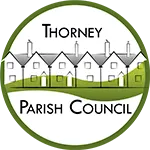We have 4 vacancies. Please use the attached form to apply to join us or this one in word format
Some guidance on the qualities the Council will be looking for in a candidate.
| COMPETENCY | ESSENTIAL | DESIRABLE |
| Personal Attributes |
| Can bring a new skill, expertise or key local knowledge to the Council. |
| Experience, Skills, Knowledge and Ability |
|
|
| Circumstances |
|
for election to become a parish councillor you must be:
- At least 18 years old on the day of your nomination, and
- A British citizen, an eligible Commonwealth citizen or a citizen of any other member state of the European Union
You must also meet at least one of the following four qualifications:
- You are, and will continue to be, registered as a local government elector for the parish in which you wish to stand from the day of your nomination onwards
- You have occupied as owner or tenant any land or other premises in the parish area during the whole of the 12 months before the day of your nomination and the day of election
- Your main or only place of work during the 12 months prior to the day of your nomination and the day of election has been in the parish area
- You have lived in the parish area of within three miles of it during the whole of the 12 months before the day of your nomination and the day of election
Disqualifications from standing
There are certain people who are disqualified from being elected to a parish or community council in England and Wales.
You cannot be a candidate if at the time of your nomination and on the day of the election, any of the following are true:
- You are employed by the parish council or hold a paid office under the parish/community council (including joint boards or committees),
- You are the subject of a bankruptcy restrictions order or interim order,
- You have been sentenced to a term of imprisonment of three months or more (including a suspended sentence), without the option of a fine, during the five years before polling day
- You have been disqualified under the Representation of the People Act 1983 (which covers corrupt or illegal electoral practices and offences relating to donations) or under the Audit Commission Act 1998
A person may also be disqualified from election if they have been disqualified from standing for election to a local authority following a decision of the First-tier Tribunal (formerly the Adjudication Panel for England or Wales).
Attending parish council meetings
Your councillors meet regularly as a parish council and welcome attendance and participation from the communities they serve. Meetings are advertised, but you can contact the parish council clerk for dates and times of the forthcoming meetings. Normally at the beginning of each meeting there is an open forum for the public to put forward questions and points they wish to raise.
Joining a working group that deals with specific issues within the parish
Parish councils get involved in lots of projects with their communities. Working groups are made up of parish councillors and community representatives working on a specific project, such setting up a new local shop, carrying out a parish plan or helping to develop a neighbourhood plan.
Contacting your parish councillor with ideas or concerns about your parish
You can find out who your parish councillors are from your parish council clerk
Parish councils can extend their powers to do anything to improve the social, economic and environmental wellbeing of their community as long as it is within the law. To exercise this right, a parish council must adopt the general power of competence (Local Councils in England were given a General Power of Competence in the Localism Act 2011, Sections 1-8, subject to fulfilling certain criteria.
At the time when the General Power of Competence is adopted, at least two-thirds of the total seats on the council must be held by members who stood at the last ordinary election or subsequent by-election, i.e. council members who have been elected (even if unopposed) rather than co-opted or appointed.
The Clerk must hold the Certificate in Local Council Administration or an equivalent qualification.
The General Power of Competence does not mean the Council can delegate decisions to individual councillors. This procedural matter remains enshrined in law.
